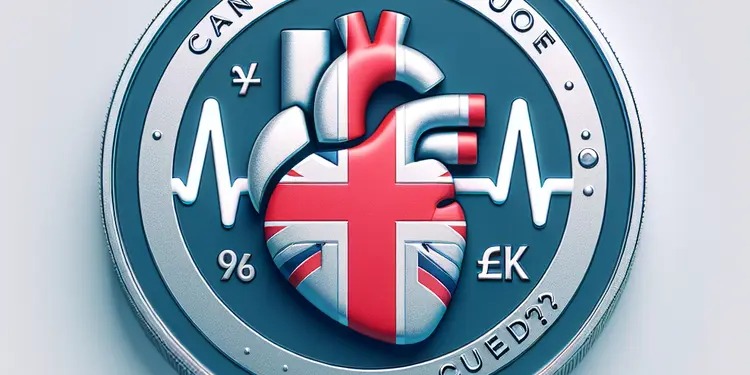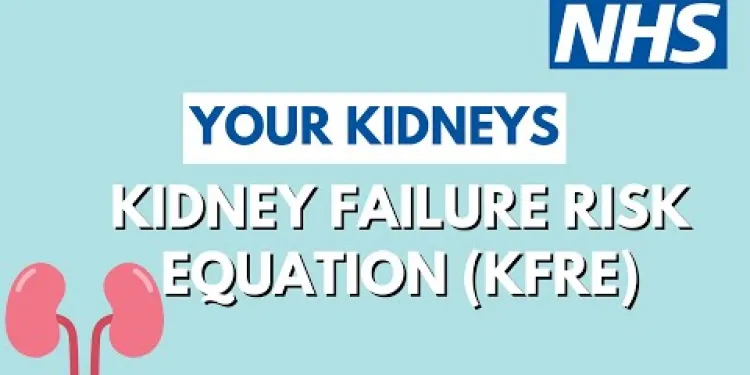Find Help
More Items From Ergsy search
-

Heart Failure : Treatment and monitoring of fluid retention
Relevance: 100%
-

Is Baxdrostat used in treating heart failure?
Relevance: 49%
-

Heart Failure : Heart failure that cannot pump
Relevance: 48%
-

Heart Failure : Symptoms of heart failure
Relevance: 46%
-

Heart Failure : The normal heart
Relevance: 46%
-

What is the role of diet in managing heart failure?
Relevance: 45%
-

How is heart failure diagnosed?
Relevance: 44%
-

What should I do if I experience symptoms of heart failure?
Relevance: 44%
-

What medications are commonly prescribed for heart failure?
Relevance: 43%
-

Are there different types of heart failure?
Relevance: 43%
-

Can heart failure be cured?
Relevance: 43%
-

Heart Failure : What is heart failure?
Relevance: 41%
-

Heart Failure : When the heart becomes stiff?
Relevance: 41%
-

Heart failure introduction
Relevance: 40%
-

Can heart failure affect other organs?
Relevance: 39%
-

What is the prognosis for someone with heart failure?
Relevance: 38%
-

How does exercise impact heart failure?
Relevance: 38%
-

What is heart failure?
Relevance: 36%
-

Can heart failure be prevented?
Relevance: 36%
-

What causes heart failure?
Relevance: 36%
-

What are the common symptoms of heart failure?
Relevance: 31%
-

What lifestyle changes can help manage heart failure?
Relevance: 28%
-

What are the long-term effects of a heart attack?
Relevance: 26%
-

Medicines of the heart
Relevance: 25%
-

Why is reducing aldosterone levels important?
Relevance: 24%
-

How often should someone with heart failure see their doctor?
Relevance: 24%
-

How do beta-blockers contribute to heart attack prevention?
Relevance: 21%
-

Is my abnormal heart rhythm dangerous?
Relevance: 21%
-

Is my abnormal heart rhythm dangerous?
Relevance: 20%
-

Heart stents
Relevance: 19%
-

What is my risk of kidney failure with CKD (chronic kidney disease) | UHL NHS Trust
Relevance: 19%
-

What is heart valve disease?
Relevance: 18%
-

What are the treatment options for BPH?
Relevance: 18%
-

Does coffee consumption have any long-term heart health effects?
Relevance: 18%
-

Is it possible to prevent a heart attack?
Relevance: 18%
-

Are heart attack symptoms different for people with diabetes?
Relevance: 17%
-

Heart Attack Stories | NHS
Relevance: 17%
-

How long do heart attack symptoms last?
Relevance: 17%
-

What are the risk factors for a heart attack?
Relevance: 17%
-

What is credit monitoring?
Relevance: 17%
Heart Failure: Treatment and Monitoring of Fluid Retention
Understanding Heart Failure
Heart failure refers to a chronic condition where the heart's ability to pump blood effectively is impaired. A key consequence of heart failure is fluid retention, which can lead to symptoms such as swelling in the legs, ankles, and feet, rapid weight gain, and shortness of breath. Proper management of fluid retention is crucial in improving the quality of life for heart failure patients.
Treatment Options for Fluid Retention
In the United Kingdom, the treatment of fluid retention in heart failure patients typically involves lifestyle changes, medications, and in some cases, medical procedures:
- Diuretics: Often referred to as water pills, diuretics help the body expel excess fluid through urine. Common diuretics include furosemide, bumetanide, and spironolactone.
- Dietary Adjustments: Reducing salt intake is critical as it helps to minimize water retention. Patients are often advised to follow a low-sodium diet.
- Fluid Restriction: In severe cases, limiting daily fluid intake can help prevent fluid buildup.
- Medical Procedures: In some instances, treatments like ultrafiltration may be employed to remove excess fluid from the blood.
Monitoring Fluid Retention
Regular monitoring of fluid retention is essential for managing heart failure effectively. This includes:
- Daily Weigh-ins: Patients are advised to weigh themselves daily at the same time, usually in the morning. A sudden weight gain may indicate fluid retention.
- Self-Monitoring Signs: Recognizing symptoms such as increased swelling in the extremities, bloating, or shortness of breath is vital.
- Regular Check-ups: Consistent follow-ups with healthcare providers are crucial. These appointments allow for adjustments in treatment and ensure proper management of the condition.
- Use of Technology: Advanced technologies, including telemonitoring and wearable devices, can help in real-time tracking of vital signs, providing healthcare professionals with timely data to adjust treatments as needed.
Support and Education
Heart failure patients in the UK have access to various support resources, including the NHS and heart failure clinics that offer tailored advice and educational materials. Patient education on the importance of adhering to treatment plans and engaging in recommended lifestyle changes significantly enhances treatment outcomes.
In conclusion, effective treatment and vigilant monitoring of fluid retention are critical components of heart failure management. Through a combination of medications, lifestyle modifications, and regular check-ups, heart failure patients can lead more comfortable and healthier lives.
Heart Failure: How to Treat and Check for Fluid Buildup
What is Heart Failure?
Heart failure is a long-lasting condition. It means the heart can't pump blood as well as it should. Because of this, fluid can build up in the body. This can make legs, ankles, and feet swell. It can also cause quick weight gain and make it hard to breathe. Taking care of fluid buildup is very important to help people feel better.
Ways to Treat Fluid Buildup
In the United Kingdom, helping people with heart failure involves changes in lifestyle, taking medicine, and sometimes special medical treatments:
- Diuretics: These are also called water pills. They help the body get rid of extra fluid by making you pee. Some common ones are furosemide, bumetanide, and spironolactone.
- Eating Changes: Eating less salt is very important because salt makes the body hold onto water. Doctors often tell patients to eat foods with low salt.
- Drinking Less: If things are very bad, drinking less water each day can help stop extra fluid from building up.
- Special Treatments: Sometimes, doctors use special treatments like ultrafiltration to take out extra fluid from the blood.
How to Check Fluid Buildup
Checking fluid buildup often is important for managing heart failure. You can do this by:
- Weighing Daily: People should weigh themselves every day at the same time, usually in the morning. If weight increases quickly, it might mean there's more fluid buildup.
- Watching for Symptoms: It's important to look for signs like swelling in the legs, feeling bloated, or having trouble breathing.
- Regular Doctor Visits: Going to the doctor often is essential. At doctor's visits, treatments can be adjusted to better manage heart failure.
- Using Technology: New tools like telemonitoring and fitness devices can help track health at home. They send information to doctors so they can change treatments if needed.
Help and Learning
People with heart failure in the UK can get help from the NHS and special heart clinics. These places offer advice and learning materials. Learning why treatments and healthy habits are important helps people get better results from their treatment.
To sum up, good treatment and careful checking of fluid buildup are key parts of managing heart failure. By using medicine, making lifestyle changes, and having regular doctor visits, people with heart failure can feel better and live healthier lives.
Frequently Asked Questions
What is heart failure?
Heart failure is a condition in which the heart is unable to pump sufficiently to maintain blood flow to meet the body's needs.
What are the common symptoms of heart failure?
Common symptoms of heart failure include breathlessness, fatigue, swollen legs and ankles, rapid or irregular heartbeat, and persistent coughing or wheezing.
How is fluid retention related to heart failure?
Fluid retention occurs when the heart’s weakened pumping action causes blood to back up in the veins, leading to fluid build-up in the tissues.
What are the signs of fluid retention in heart failure patients?
Signs of fluid retention include swelling in the legs, ankles, and abdomen, shortness of breath, sudden weight gain, and a frequent need to urinate at night.
How is fluid retention monitored in heart failure patients?
Fluid retention is often monitored by measuring daily weight, checking for swelling, and monitoring fluid intake and output.
What treatments are available for managing fluid retention in heart failure?
Treatments for managing fluid retention may include diuretics to reduce fluid build-up, dietary changes such as reducing salt intake, and lifestyle modifications like regular physical activity and avoiding excessive fluid intake.
What are diuretics and how do they help in heart failure?
Diuretics, also known as water pills, help remove excess fluid from the body by increasing urine production, which can help relieve symptoms of fluid retention.
Are there any dietary recommendations for managing fluid retention in heart failure?
Yes, dietary recommendations typically include reducing salt intake, limiting fluid intake, eating a balanced diet rich in fruits, vegetables, and whole grains, and avoiding foods high in sodium.
What role does regular monitoring play in managing heart failure with fluid retention?
Regular monitoring helps detect signs of worsening fluid retention early, allowing for timely intervention and adjustments in treatment to prevent complications and hospitalisations.
Can fluid retention be completely cured in heart failure patients?
While fluid retention can often be effectively managed, it may not be completely cured, as it is often a symptom of the underlying heart condition that requires ongoing treatment and monitoring.
How often should a heart failure patient monitor their weight?
It is generally recommended that heart failure patients weigh themselves daily, ideally at the same time each morning, to track any rapid changes that may indicate fluid retention.
What should a patient do if they notice rapid weight gain?
If a patient notices rapid weight gain, typically more than 2-3 pounds (1-1.5 kg) in a day or 5 pounds (2.5 kg) in a week, they should contact their healthcare provider as this may indicate worsening fluid retention.
What lifestyle changes can help manage heart failure symptoms?
Lifestyle changes that can help manage heart failure symptoms include maintaining a healthy diet, staying physically active, avoiding alcohol and smoking, managing stress, and adopting good sleep hygiene.
How can physical activity help in managing heart failure and fluid retention?
Regular physical activity can improve heart function, enhance circulation, and help manage weight, which can reduce the strain on the heart and help manage fluid retention.
Is it safe for heart failure patients to travel?
Heart failure patients can usually travel safely if their condition is stable, but they should consult their healthcare provider for personalised advice, ensure they have enough medication, and plan for healthcare needs at their destination.
What is heart failure?
The heart is a muscle that pumps blood around our bodies. Heart failure means the heart is not pumping blood as well as it should.
Here’s an easy way to think about it:
- The heart is like a pump. It helps move blood around our body.
- When the pump (heart) doesn’t work right, it can’t do its job well.
- If the heart can’t pump enough blood, it’s called heart failure.
If you have heart failure, you might get tired quickly or have trouble breathing. But don’t worry, doctors can help you feel better.
Here are some things that can help:
- Visit the doctor regularly.
- Take medicine if the doctor gives it to you.
- Eat healthy foods and exercise gently.
- Ask someone to help you understand what the doctor says.
Remember, you can ask questions if you don’t understand something.
Heart failure is when the heart cannot pump enough blood for the body. This means the body does not get all the blood it needs.
What happens when your heart is not working well?
Sometimes, your heart might not work as well as it should. This is called heart failure. It can make you feel tired and weak. It might be hard to breathe. You may also have swelling in your feet or ankles. These are signs that your heart needs help. If you feel any of these things, tell an adult or a doctor.
To help understand, you can use pictures or videos. They can show you how a healthy heart works and how a sick heart is different. Talking with someone about your feelings can also help.
When someone's heart is not working well, they might feel tired and have trouble breathing. Their legs and ankles could get swollen, and their heart might beat fast or unevenly. They could also have a cough that doesn't go away or make a wheezing sound when breathing.
Why do people with heart problems keep extra water in their body?
Fluid retention happens when the heart is not working well. This makes blood go back into the veins, which causes fluid to collect in the body.
You might find it helpful to use pictures to understand this better. Reading out loud can also make it easier to understand.
What are the signs of fluid build-up in people with heart problems?
Fluid build-up means extra water stays in the body. It can make parts of the body swell.
Here are some signs to look for:
- Feet and legs may get bigger and feel puffy.
- Weight goes up quickly.
- Clothes or shoes feel tight.
- Feeling short of breath or breathing heavy.
- Feeling tired or weak.
If you notice these signs, it is important to talk to your doctor.
Using a diary to write down daily weight and how clothes fit can help track changes. Taking pictures of swollen areas can also help your doctor understand.
Fluid retention can make your body hold too much water. Here are some signs:
- Your legs and ankles might get bigger.
- Your tummy might get bigger too.
- You might find it hard to breathe.
- You might put on weight quickly.
- You might need to go to the toilet a lot at night.
If you have trouble reading, you can try:
- Asking someone to read with you.
- Using audiobooks or text-to-speech tools.
- Highlighting or underlining important parts.
How do doctors check for fluid build-up in people with heart problems?
Doctors help people with heart problems by checking for too much fluid in their bodies. They do this to keep everyone healthy.
Here are some simple ways to help:
- Doctors might ask people to step on a scale every day. This helps check if they are gaining weight because of extra fluid.
- Some people write down their weight every day in a notebook or on a piece of paper.
- If a person suddenly gains a lot of weight, they should tell a doctor or nurse.
- Doctors might check if a person's ankle or stomach is swelling. This can happen if there is too much fluid.
- People can also learn to pay attention to how their clothes and shoes fit. If they get tighter, this might mean extra fluid.
- Sometimes, doctors use machines to take pictures of the heart, like an x-ray, to look for extra fluid.
These steps help people with heart problems stay safe and healthy. If you or someone you know needs help, ask a friendly doctor or nurse. They are always there to help!
To check fluid retention, you can:
- Weigh yourself every day.
- Look for swelling in your body.
- Keep track of how much you drink and how much you pee.
What can help with extra fluid in heart trouble?
Heart trouble can make too much water stay in the body. This is called fluid retention. Here are some ways to help:
- Water Pills: These pills help your body get rid of extra water.
- Eat Less Salt: Eating too much salt can make fluid retention worse. Try to eat less.
- Rest With Feet Up: Lie down and put your feet up. This can help water move out of the legs.
- Doctor Visits: Go see your doctor. They can give advice and help find the right treatment.
If you find it hard to read, there are things that can help:
- Ask someone to read with you.
- Use apps that read text out loud.
- Look for videos or pictures that explain things.
How to help with fluid build-up:
- You can take medicine called diuretics. This helps to get rid of extra fluid in your body.
- Try to eat less salty food. Salt can make your body hold onto too much water.
- Do some exercise regularly. This can help your body work better.
- Don't drink too much liquid. It can help stop extra fluid from staying in your body.
Tools that can help:
- Use a reminder app to help you remember to take medicine on time.
- Use a diary or notebook to write down what you eat. This can help you see if you're eating too much salt.
- Try soft music when exercising. It can make it more fun.
What are water pills and how do they help with heart problems?
Water pills help your body get rid of extra water and salt.
This makes it easier for your heart to pump blood. It can help when you have heart problems.
If you find reading hard, you can use tools like audiobooks or ask someone to help read with you.
Diuretics are also called water pills. They help your body get rid of extra water. They make you pee more. This can help if your body has too much water.
Here are some tips to help you understand:
- Break the text into small parts.
- Use a dictionary to learn new words.
- Highlight important words.
Are there foods to eat or avoid to help with extra fluid when you have heart problems?
Yes, here are some tips for eating healthy:
- Eat less salt.
- Drink less water if your doctor says so.
- Eat lots of fruits and vegetables.
- Eat foods like bread and pasta that are made from whole grains.
- Try not to eat too many salty foods.
Some helpful tools are:
- Use a food diary app to track your meals.
- Ask a dietitian for advice.
Why is it important to keep checking when someone with heart problems and extra fluid?
Checking often helps us see if extra fluid is getting worse. This way, we can act fast and change the treatment to stop problems and keep you out of the hospital.
Can people with heart problems stop holding too much water?
People with heart problems might have extra water in their bodies. This can make their legs and belly swell. It's not always easy to get rid of all the extra water, but doctors can help make it better.
Things that can help:
- See a Doctor: Always visit the doctor. They know what to do.
- Medicines: There are pills that can help. The doctor will choose the right ones.
- Healthy Eating: Eating good food can help. Try to eat less salty food.
- Exercise: Moving your body is good. Talk with the doctor about what you can do.
With the right help, things can get better. Always talk to a doctor about treatment and questions.
Fluid retention means your body holds too much water. You can often manage it, but it might not go away completely. This is because it’s usually caused by a heart problem that needs regular care and checking by a doctor.
How often should someone with heart problems check their weight?
People with heart problems should check their weight every day. It helps to see if there is any change. If you gain weight quickly, tell your doctor. A notebook or phone app can help you keep track of your weight. Ask a family member or friend to remind you.
People with heart problems should weigh themselves every day. It's best to do it at the same time each morning. This can help you see if you are gaining weight quickly, which might mean you have extra fluid in your body.
What to Do If You Gain Weight Quickly
If you see that you are getting heavier fast, do this:
- Tell a Doctor: Talk to your doctor soon.
- Write Down Changes: Keep a note of what is happening. Write when you gain weight and any other changes.
- Check Your Body: Look for things like swelling or feeling tired.
- Eat Healthy: Try to eat good food and less junk food.
- Move Your Body: Do some light exercise, like walking.
- Get Support: Ask your family or friends to help you.
Remember, getting help is important.
If you see that you are gaining weight quickly, like 2-3 pounds in one day, or 5 pounds in a week, you should talk to your doctor. This could mean your body is holding too much fluid.
What lifestyle changes can help manage heart failure symptoms?
How can you change your daily life to feel better if you have heart problems?
Here are some simple tips:
- Eat healthy food: Try eating more fruits and veggies.
- Move your body: Do gentle exercises like walking every day.
- Take your medicine: Always take the medicine your doctor gives you.
- Rest: Make sure you get enough sleep each night.
- Drink water: Drink enough water, but not too much.
- Say no to smoking: Don't smoke cigarettes.
- Avoid stress: Try doing deep breathing or listening to calming music.
You can ask a friend, family member, or doctor to help you with these changes. There are also apps and reminders to help remember what to do each day.
You can do some things to help your heart feel better:
- Eat healthy food.
- Move your body and exercise.
- Don't drink alcohol.
- Don't smoke.
- Try to stay calm and not get too stressed.
- Get good sleep every night.
Using a phone app to remind you can help. Ask someone for help if you need it.
How does moving your body help with heart problems and extra water in the body?
Doing exercise is good for your heart. It makes your heart work better and helps blood move around your body. Exercise also helps you keep a healthy weight. This means your heart doesn’t have to work as hard, and it can help stop your body from holding too much water.
Tools like pictures and videos can help you learn more about exercise. Try to do some fun activities every day to keep your heart happy.
Can people with heart problems travel safely?
If your heart is not working well, you can still travel if you feel okay. It's important to talk to your doctor before you go to make sure it's safe. Remember to take enough medicine with you and find out where you can get help where you are going.
Useful Links
This website offers general information and is not a substitute for professional advice.
Always seek guidance from qualified professionals.
If you have any medical concerns or need urgent help, contact a healthcare professional or emergency services immediately.
- Ergsy carfully checks the information in the videos we provide here.
- Videos shown by Youtube after a video has completed, have NOT been reviewed by ERGSY.
- To view, click the arrow in centre of video.
- Most of the videos you find here will have subtitles and/or closed captions available.
- You may need to turn these on, and choose your preferred language.
- Go to the video you'd like to watch.
- If closed captions (CC) are available, settings will be visible on the bottom right of the video player.
- To turn on Captions, click settings .
- To turn off Captions, click settings again.
More Items From Ergsy search
-

Heart Failure : Treatment and monitoring of fluid retention
Relevance: 100%
-

Is Baxdrostat used in treating heart failure?
Relevance: 49%
-

Heart Failure : Heart failure that cannot pump
Relevance: 48%
-

Heart Failure : Symptoms of heart failure
Relevance: 46%
-

Heart Failure : The normal heart
Relevance: 46%
-

What is the role of diet in managing heart failure?
Relevance: 45%
-

How is heart failure diagnosed?
Relevance: 44%
-

What should I do if I experience symptoms of heart failure?
Relevance: 44%
-

What medications are commonly prescribed for heart failure?
Relevance: 43%
-

Are there different types of heart failure?
Relevance: 43%
-

Can heart failure be cured?
Relevance: 43%
-

Heart Failure : What is heart failure?
Relevance: 41%
-

Heart Failure : When the heart becomes stiff?
Relevance: 41%
-

Heart failure introduction
Relevance: 40%
-

Can heart failure affect other organs?
Relevance: 39%
-

What is the prognosis for someone with heart failure?
Relevance: 38%
-

How does exercise impact heart failure?
Relevance: 38%
-

What is heart failure?
Relevance: 36%
-

Can heart failure be prevented?
Relevance: 36%
-

What causes heart failure?
Relevance: 36%
-

What are the common symptoms of heart failure?
Relevance: 31%
-

What lifestyle changes can help manage heart failure?
Relevance: 28%
-

What are the long-term effects of a heart attack?
Relevance: 26%
-

Medicines of the heart
Relevance: 25%
-

Why is reducing aldosterone levels important?
Relevance: 24%
-

How often should someone with heart failure see their doctor?
Relevance: 24%
-

How do beta-blockers contribute to heart attack prevention?
Relevance: 21%
-

Is my abnormal heart rhythm dangerous?
Relevance: 21%
-

Is my abnormal heart rhythm dangerous?
Relevance: 20%
-

Heart stents
Relevance: 19%
-

What is my risk of kidney failure with CKD (chronic kidney disease) | UHL NHS Trust
Relevance: 19%
-

What is heart valve disease?
Relevance: 18%
-

What are the treatment options for BPH?
Relevance: 18%
-

Does coffee consumption have any long-term heart health effects?
Relevance: 18%
-

Is it possible to prevent a heart attack?
Relevance: 18%
-

Are heart attack symptoms different for people with diabetes?
Relevance: 17%
-

Heart Attack Stories | NHS
Relevance: 17%
-

How long do heart attack symptoms last?
Relevance: 17%
-

What are the risk factors for a heart attack?
Relevance: 17%
-

What is credit monitoring?
Relevance: 17%


